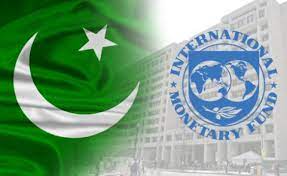Islamabad August 29 2022: Pakistan’s government in recent weeks has tied up at least $37 billion in international loans and investments, officials said, pulling the country away from the kind of financial collapse seen in Sri Lanka, reported by Wall Street Journal.
The board of the International Monetary Fund is scheduled to meet Monday to consider a bailout deal worked out between IMF staff and Islamabad, under which the lender will provide $4 billion over the remainder of the current fiscal year, which began July 1.
The IMF required the country to first arrange additional funds to cover the rest of its external funding shortfall for the fiscal year. The full package is now in place, according to the Pakistani government.
Despite that vital step, Pakistan’s economic stability is far from assured. Opposition leader Imran Khan continues a fierce campaign against the government to press for fresh elections, while catastrophic flooding from the summer’s monsoon rain will cost the economy billions of dollars.
Among allies, China led the way, providing more than $10 billion, mostly by rolling over existing loans, Pakistani officials said.
Saudi Arabia, meanwhile, is rolling over a $3 billion loan and providing at least $1.2 billion worth of oil on a deferred payment basis, the officials said. Riyadh announced last week it would also invest $1 billion in Pakistan. The U.A.E. will invest a similar amount in Pakistan’s commercial sector, and it is rolling over a $2.5 billion loan.
Last week, the remaining money was secured, with a dash to Qatar by Prime Minister Shehbaz Sharif and Finance Minister Miftah Ismail. Doha announced it would invest $3 billion in the country.
“It’s not been easy,” Mr. Ismail said, in an interview. “I think Pakistan right now is not in danger of default. But our viability depends on the IMF program.”
As the IMF and allies disburse funds, the balance of payments crisis should ease. But the scale of the flooding from heavier-than-usual monsoon rains means that the country will need more financing than it had planned for, warned the Pakistan Business Council, which represents larger companies.
Mr. Ismail, the finance minister, estimated that the economic impact of the floods would be at least $10 billion. That would amount to around 3% of gross domestic product. Some 30 million people have been affected by the flooding and more than 1,000 killed since mid-June, officials say.
When a new government came to power in April, it had warned that the country was at risk of defaulting on its foreign debt payments. The situation was made worse by the price shock from the Ukraine war, which pushed up the cost of fuel and other imports.
Pakistan is due to make loan repayments of nearly $21 billion in the current financial year. In addition, it needs to cover its current-account deficit, which is officially forecast at $9.2 billion.
The rest of the new funding is aimed at building up foreign currency reserves—now only enough to cover about six weeks of imports—by the end of the fiscal year, officials say.
The IMF didn’t respond to a request for comment.
Tahir Abbas, head of research at Arif Habib, a Pakistani stockbroker, said that the country’s debt challenge didn’t become as acute as Sri Lanka’s, because its borrowings were owed mostly to other countries or multilateral agencies, which can be more easily renegotiated. Colombo, which defaulted on its sovereign debt in May, had also borrowed heavily from private sector bondholders.
“We are in a good position. The IMF deal is secured, friendly countries have helped, and global commodity prices are coming down,” Mr. Abbas said.
However, the confrontation between the government and the leader it replaced in April has expanded to the IMF deal in recent days. Imran Khan’s political party, which runs the governments of two of Pakistan’s four provinces, threatened to undermine the terms of the IMF agreement, by not providing funds due from the provinces to the central government.
The opposition is hitting back after the government charged Mr. Khan with terrorism, over a recent speech. He also faces a hearing over a contempt of court charge this week. Mr. Khan risks arrest, and being barred from politics, from the cases.
Mr. Ismail also faces calls to renegotiate the program from influential voices within his own party, upset about the austerity measures imposed as part of the program. Gasoline and electricity prices have been raised sharply and government spending reined in. Inflation hit 45%, in a weekly official index, released on Aug. 25.
The flooding is likely to add to inflation, with 2 million acres of crops affected, as well as hit exports.
The immediate relief effort could cost the authorities at least $1 billion, the finance minister said. Pakistan has appealed for international aid to help cope with the floods, with $500 million promised so far.











